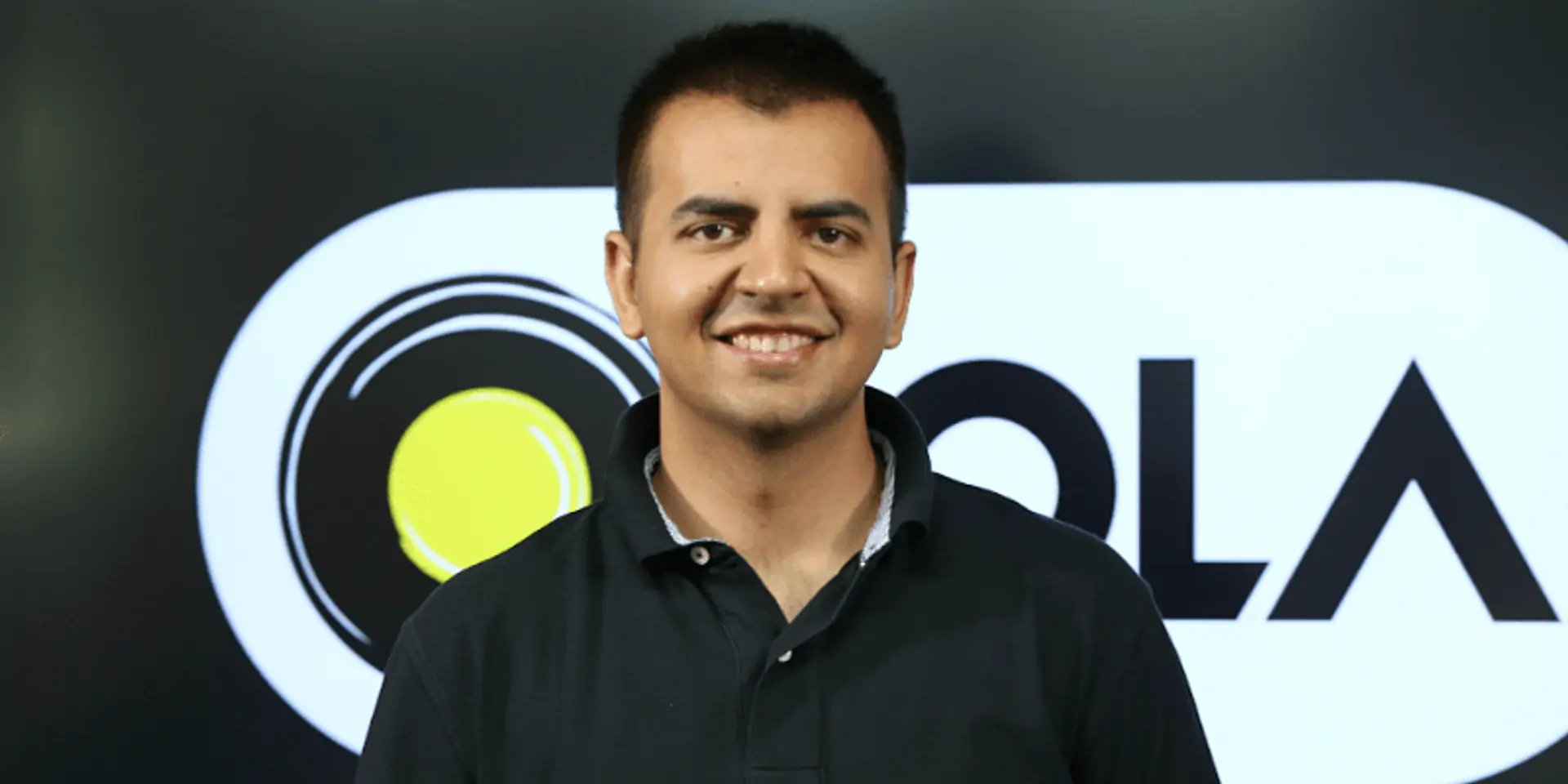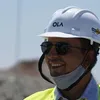Ola Electric announces launch of EV hypercharger network; to build 100,000 stations in 5 years
Bhavish Aggarwal, Co-founder and Group CEO, Ola, said it is establishing one of the world’s largest two-wheeler charging network, all in line to get Ola Electric scooters out on the road soon.
At a virtual press conference on Thursday, Bhavish Aggarwal, Co-founder and Group CEO, , announced the launch of ’s Hypercharger Network.
Ola Electric aims to create the world’s largest two-wheeler charging network to build over 100,000 charging points across 400 cities in five years.
Earlier, during a factory visit in March 2021, Bhavish told YourStory that Ola Electric’s fully automated factory has the capacity to build 10 million electric two-wheelers by June 2022.
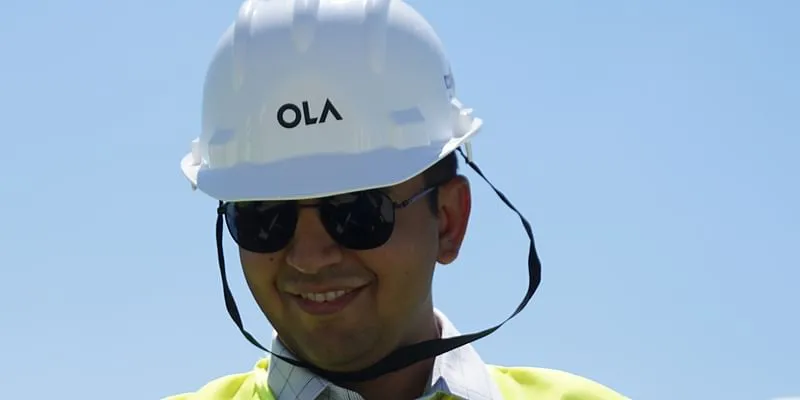
Bhavish Aggarwal with the scooter
“We couldn’t think of any other day than Earth Day to reinforce our commitment towards electric and sustainable mobility. With the second wave of COVID-19 impacting us all in India, we have taken every step and measure to ensure the safety and security of the staff, working tirelessly to ensure that the factory gets completed soon. We still are in line to finish the first phase of the factory by June 2021,” Bhavish told YourStory.
The company believes the demand for electric two-wheelers will only increase as several people are now looking for their own safe, secure, and sustainable mode of transport, he added.
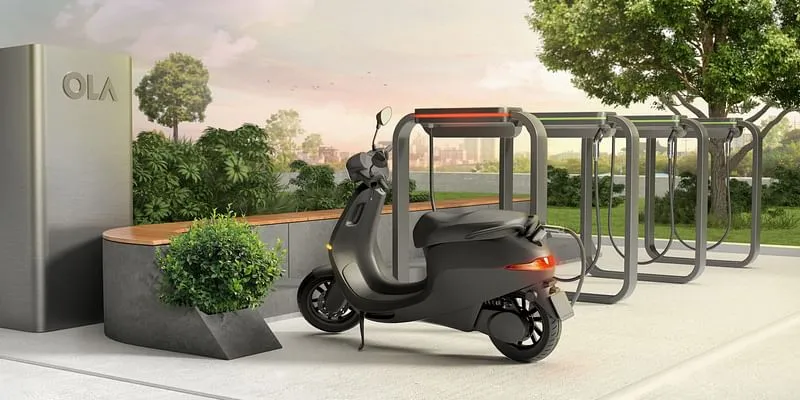
Ola Hypercharger Network Destination Charging Station. Image Credit: Ola Electric
“We believe, we are at a tipping point in building a strong and sustainable mobility system in India. I have always said this we are not the 'Tesla of India,' but the 'Ola of the world'. We believe that India has the capability to build a global company and platform to take on the world and lead the charge in electric mobility,” Bhavish said.
In the first year, Ola is setting up over 5,000 charging points across 100 cities in India, more than double the existing charging infrastructure in the country. A 50 percent charge takes 18 minutes, which will give the electric two-wheeler a range of 75 km.
“The range for some of our models will even touch 150 km with a 100 percent charge,” added Bhavish. The hyper-charging towers are Ola's proprietary technology and are not interoperable. In fact, these chargers will be automated with multi-level charging and parking systems in popular areas.
Ola Hyperchargers will be widely deployed across cities and will be present in city centres and dense business districts as standalone towers and popular locations, including shopping malls, IT parks, office complexes, cafes, etc., ensuring Ola Electric customers always have a Hypercharger nearby.
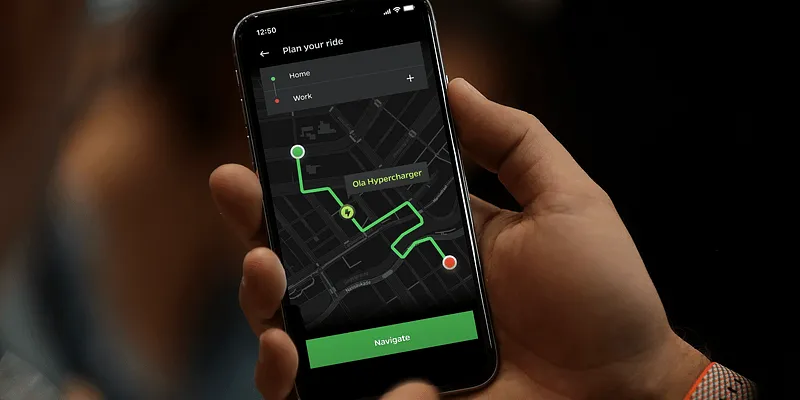
Ola Electric App Route Planning with Hypercharger. Image Credit: Ola Electric
The company will also provide a bundled wall-charger for homes, which will be linked to its app, and functions like a plug and play system. The app will have navigation suggestions, automated charging suggestions, and updates.
In the next five years, Ola intends to invest $2 billion in Ola Electric Future Factory. Bhavish said, “We will also be aggressively looking at spending in advertising and marketing. Electric is the future of mobility, and we are reimagining the entire user experience of owning an electric vehicle."
He added, "Our plan to build a comprehensive charging network is a key piece of this. By creating the world’s largest and densest two-wheeler charging network, we will dramatically accelerate the customer adoption of electric vehicles and rapidly move the industry to electric.”
Edited by Suman Singh


